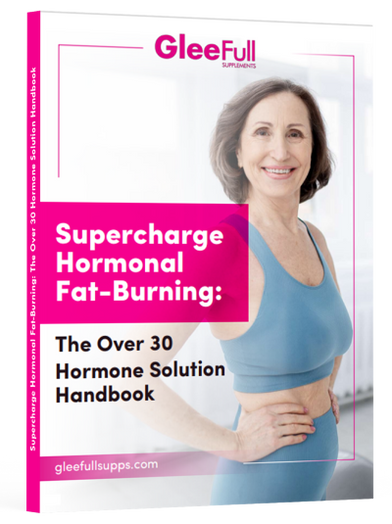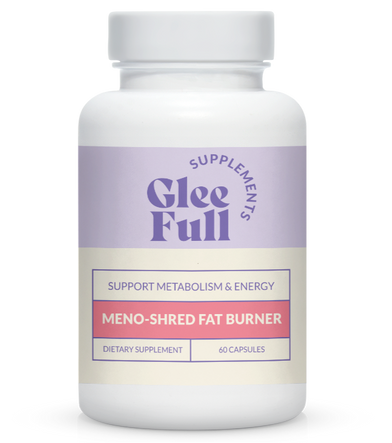Your Cart




Estrogen, often hailed as the "female hormone," plays a pivotal role in the intricate tapestry of human biology. This powerful hormone is not exclusive to women; it is present in both sexes, although it predominantly influences female reproductive health. Estrogen's journey begins in the ovaries, where it is primarily produced, but its influence extends far beyond the reproductive organs.
In women, estrogen is the driving force behind the development of secondary sexual characteristics during puberty, such as breast growth, the regulation of the menstrual cycle, and the distribution of body fat. It also plays a crucial role in maintaining the health of the cardiovascular system, bones, and even the brain. The hormone's impact on mood and cognitive function is particularly noteworthy, as fluctuations in estrogen levels can influence emotional well-being and cognitive clarity.
Estrogen's functions are not limited to the biological. Historically, the hormone has been a subject of immense scientific interest and cultural significance. From its identification in the early 20th century to its role in hormone replacement therapy, estrogen has been at the center of many medical advancements and societal discussions. The discovery of its synthetic form, which paved the way for oral contraceptives, revolutionized reproductive health and women's liberation, marking a significant milestone in modern medicine.
However, estrogen's influence is a double-edged sword. While essential for many bodily functions, imbalances in estrogen levels can lead to various health issues. Excessive estrogen is linked to conditions such as estrogen dominance, which can cause symptoms ranging from weight gain to menstrual irregularities and an increased risk of certain cancers, including breast cancer. Conversely, low estrogen levels, common during menopause, can result in osteoporosis, cardiovascular issues, and a decline in cognitive functions.
The hormone's complex interplay with other systems in the body has made it a focal point in ongoing research. Scientists continue to explore estrogen's role in areas like aging, metabolic processes, and chronic diseases. This research not only aims to deepen our understanding of estrogen's multifaceted roles but also to develop targeted therapies that can address the hormone-related conditions that affect millions of people worldwide.
In essence, estrogen is a hormone of balance, orchestrating a symphony of physiological processes that sustain health and vitality. Its significance transcends mere biology, weaving into the broader narrative of human health and societal progress. As research advances, our understanding of estrogen continues to evolve, promising new insights and therapeutic possibilities that could transform lives.
Does estrogen contribute to PMS and menopause?
Estrogen plays a significant role in both premenstrual syndrome (PMS) and menopause. Its fluctuations can lead to a variety of symptoms and physiological changes during these periods.
Estrogen and PMS
Premenstrual Syndrome (PMS) is a group of symptoms that occur in women typically one to two weeks before their menstrual period. These symptoms can include mood swings, tender breasts, food cravings, fatigue, irritability, and depression. The role of estrogen in PMS is significant:
Estrogen and Menopause
Menopause marks the end of a woman's reproductive years and is characterized by the cessation of menstrual periods for 12 consecutive months. The transition into menopause, known as perimenopause, involves significant hormonal changes, particularly a decline in estrogen levels. This decline contributes to a wide range of symptoms:
Understanding the role of estrogen in these conditions helps in managing symptoms and improving quality of life for women experiencing PMS and menopause. Hormone replacement therapy (HRT) is one option that can help alleviate some of the symptoms associated with decreased estrogen levels, although it is not suitable for everyone and should be discussed with a healthcare provider.
But, look no further—Gleefull's Estro Harmony is here to help you reclaim your balance and well-being naturally!
Introducing Gleefull's Estro Harmony
Gleefull's Estro Harmony is a meticulously formulated supplement designed to naturally balance your estrogen levels, helping you conquer the discomfort and disruptions caused by hormonal imbalances. With a blend of high-quality, natural ingredients, Estro Harmony provides a comprehensive solution to support your hormonal health.
Why Choose Estro Harmony?
The Science Behind Estro Harmony
Gleefull's Estro Harmony is crafted with scientifically-backed ingredients known for their ability to support hormonal balance:
Experience the Gleefull Difference
Gleefull's commitment to quality ensures that Estro Harmony is made with the purest, most effective ingredients. Our supplement is free from harmful additives and preservatives, providing you with a safe and natural way to balance your hormones.
How to Use Estro Harmony
For best results, take one capsule of Estro Harmony daily with a meal. Consistent use will help you experience the full benefits of this powerful supplement, allowing you to enjoy a life free from the disruptions of hormonal imbalances.
Embrace Harmony Today
Don't let PMS, hormonal acne, bloating, or menopause symptoms control your life any longer. Choose Gleefull's Estro Harmony and take the first step towards natural, balanced hormonal health. Feel the difference, embrace the harmony, and live your life to the fullest with Gleefull's Estro Harmony.
Order Now
Visit our website to learn more and place your order today.
Join countless others who have found relief and regained their balance with Gleefull's Estro Harmony. Your journey to a happier, healthier you start here!